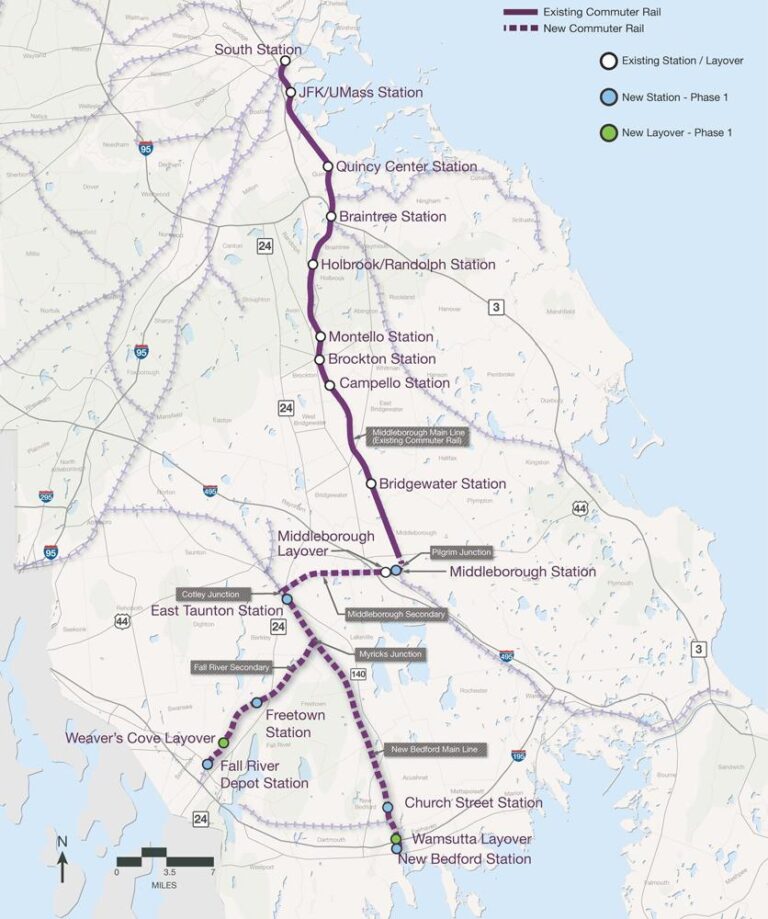The Massachusetts Bay Transportation Authority (MBTA) has announced its detailed construction timeline for key infrastructure projects slated to begin in early 2025.These initiatives aim to enhance service reliability, upgrade commuter rail and subway systems, and improve overall passenger experience across the network. As the MBTA prepares to roll out these extensive improvements,riders can expect important work targeting critical corridors and stations,reflecting the agency’s commitment to modernizing the region’s transit infrastructure.
Table of Contents
- MBTA Outlines Key Milestones for Early 2025 Construction Initiatives
- Detailed Analysis of Infrastructure Upgrades and Service Improvements
- Community Impact and Strategies for Minimizing Disruptions
- Expert Recommendations for Stakeholders and Commuters Ahead of Project Launch
- In Conclusion
MBTA Outlines Key Milestones for Early 2025 Construction Initiatives
The Massachusetts Bay Transportation Authority (MBTA) has revealed a detailed timeline pinpointing crucial milestones for its ambitious construction initiatives slated for early 2025. Prioritizing system modernization and commuter comfort, these projects will focus on upgrading key infrastructure components, improving rail reliability, and expanding capacity across multiple lines. With an emphasis on minimizing service disruptions, the MBTA plans strategic phased construction efforts, ensuring commuter safety and operational continuity throughout the process.
Key highlights of the early 2025 construction timeline include:
- Commencement of station platform enhancements to improve accessibility and passenger flow
- Initiation of track rehabilitation projects aimed at reducing delays and increasing train speeds
- Deployment of advanced signaling systems to enhance operational efficiency and safety
- Overhaul of select locomotive fleets, including the F40PH models, to extend service life and performance
These targeted improvements underscore the MBTA’s commitment to deliver a resilient, state-of-the-art transit system prepared to meet the region’s growing transportation demands.
Detailed Analysis of Infrastructure Upgrades and Service Improvements
The Massachusetts Bay Transportation Authority (MBTA) is pushing forward with a robust schedule of infrastructure improvements slated for early 2025. Central to these efforts is the construction of a new vehicle entrance in North Cambridge,designed specifically to facilitate enhanced access for work vehicles servicing the Red Line. This upgrade aims to streamline maintenance activities, reduce operational disruptions, and improve overall reliability on one of the system’s busiest corridors. Additionally,ongoing track work,highlighted by completed projects in 2024,is expected to contribute substantially to the removal of speed restrictions,resulting in faster and safer train operations in the coming year.
Beyond physical infrastructure, the MBTA continues to refine its service delivery through strategic schedule adjustments scheduled for this fall, starting August 24th. These changes demonstrate a commitment to optimizing both subway and bus operations by aligning service frequency with real-time demand patterns. Key focuses include:
- Improved bus and subway punctuality through precision scheduling and service frequency tuning.
- Enhancements in customer experience by reducing wait times during peak and off-peak hours.
- Ensuring reliability and safety by integrating recent infrastructure upgrades into daily operational procedures.
Together, these initiatives underscore the MBTA’s ongoing dedication to delivering a more efficient and commuter-pleasant transit system throughout Greater Boston.
Community Impact and Strategies for Minimizing Disruptions
The upcoming MBTA projects will inevitably impact daily commutes and neighborhood routines, but the authority is implementing targeted strategies to ease the burden on affected communities.Residents and businesses can expect clear,frequent interaction about construction phases,changes to transit schedules,and temporary route adjustments. To mitigate noise and traffic disturbances, work will be scheduled primarily during off-peak hours and weekends. In addition, enhanced signage and station announcements will guide passengers through choice transit options, ensuring safety and minimizing confusion.
Key disruption reduction measures include:
- Deployment of shuttle services during station closures or track work
- Real-time updates through MBTA apps and social media channels
- Coordination with local agencies to manage traffic flow around construction zones
- Community liaison teams dedicated to promptly addressing public concerns
By proactively addressing the challenges posed by necessary infrastructure upgrades, the MBTA aims to balance progress with maintaining quality of life for residents and commuters alike.
Expert Recommendations for Stakeholders and Commuters Ahead of Project Launch
Industry experts urge both stakeholders and commuters to prioritize clear communication and adaptability as the MBTA embarks on its early 2025 construction initiatives. Stakeholders are advised to establish robust collaboration channels with the MBTA project teams to monitor progress and promptly address any emerging concerns. Commuters should prepare for potential schedule changes and service adjustments by leveraging official MBTA updates and alternative transit options. Key recommendations include:
- Regularly checking MBTA advisories via official apps and websites
- Planning flexible travel routes to accommodate temporary disruptions
- Prioritizing safety by adhering to posted construction zone guidelines
- Engaging in community forums to stay informed and provide feedback
Experts also emphasize the importance of public patience and cooperation throughout the construction phase to ensure minimal disruption and accelerate project completion. Active stakeholder involvement and commuter vigilance will be critical in maintaining service reliability during this transformative period. Leveraging lessons learned from past MBTA infrastructure projects, specialists recommend proactive contingency planning and obvious updates as cornerstones for success, reinforcing a commitment to enhanced commuter rail, light rail, and subway operations in the coming years.
In Conclusion
As the MBTA moves forward with its ambitious construction timeline for early 2025, commuters and residents alike can anticipate significant improvements in transit infrastructure. These projects promise to enhance service reliability, accessibility, and overall rider experience across the network. The authority’s commitment to timely completion underscores its dedication to meeting the growing demands of the Boston metropolitan area. Further updates will be provided as work progresses, keeping the public informed every step of the way.

